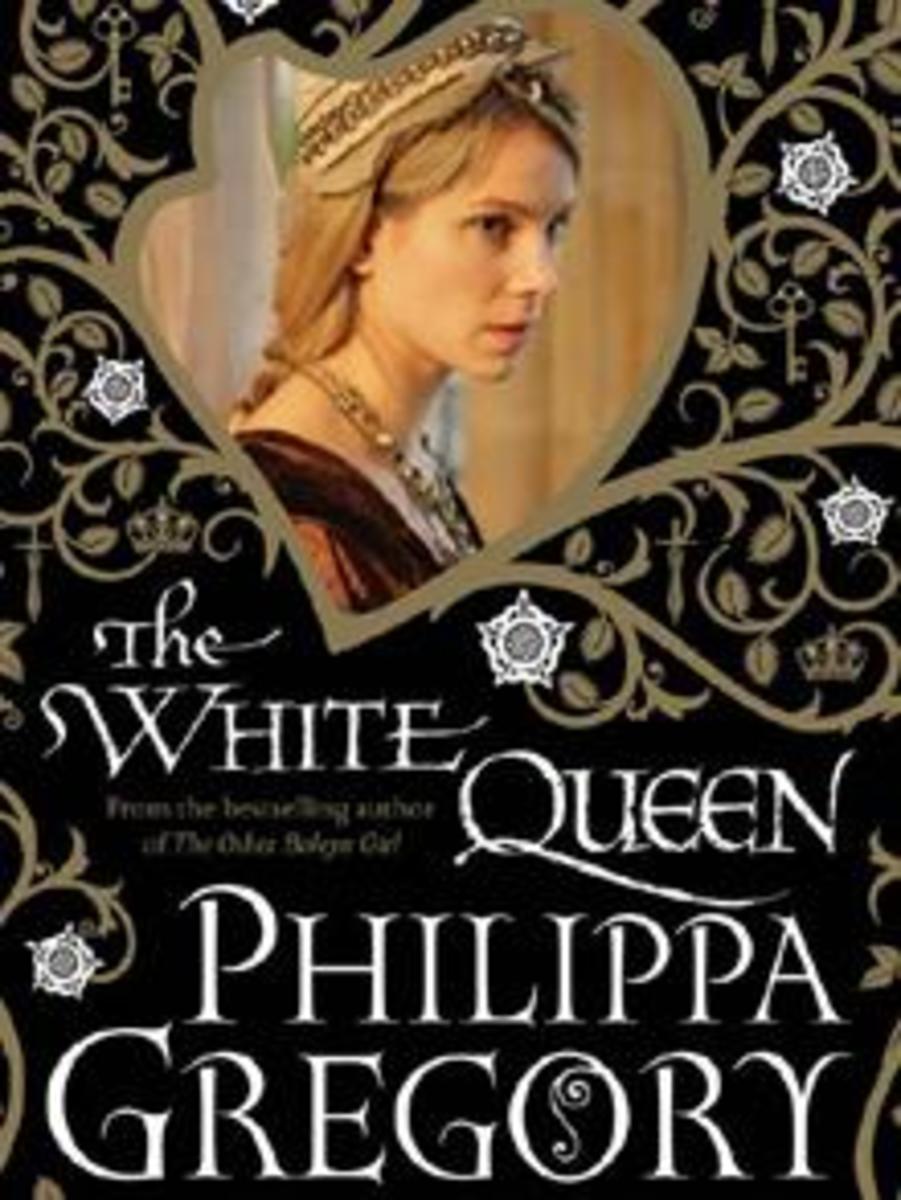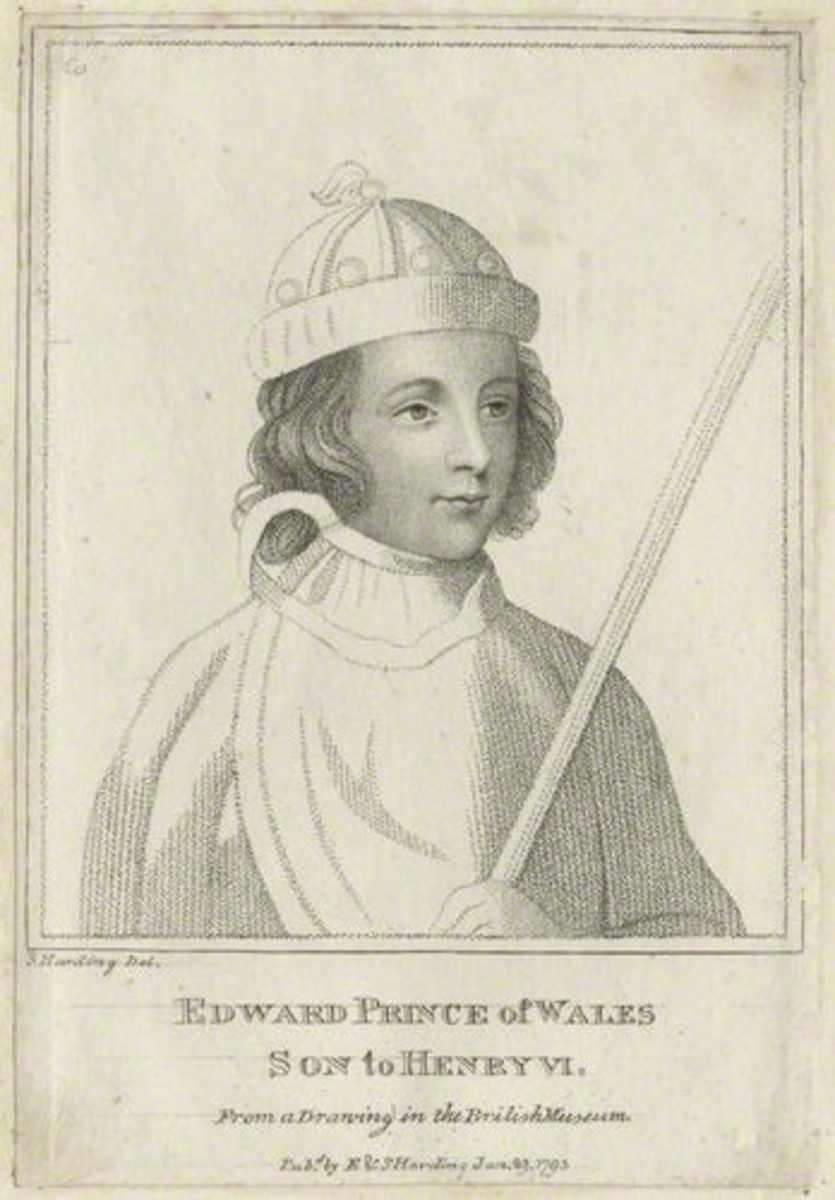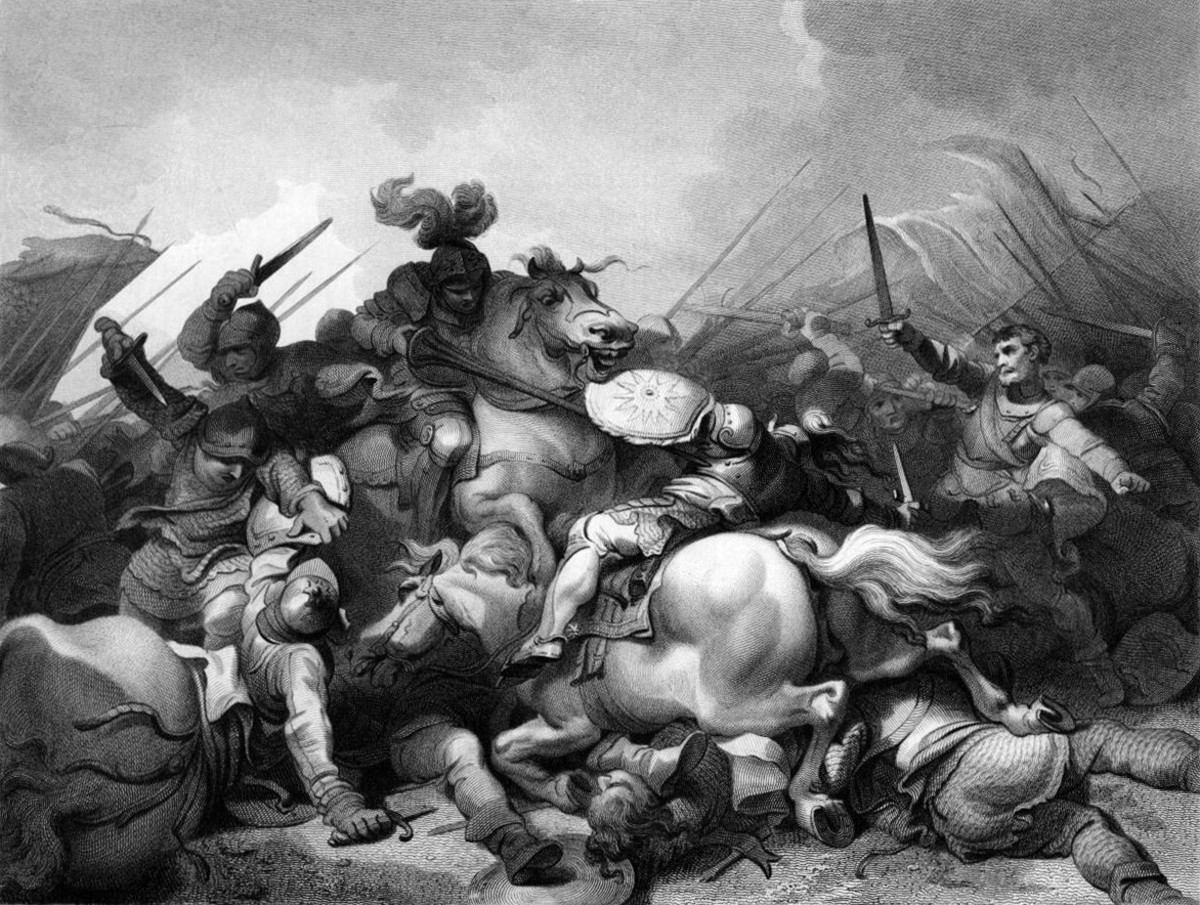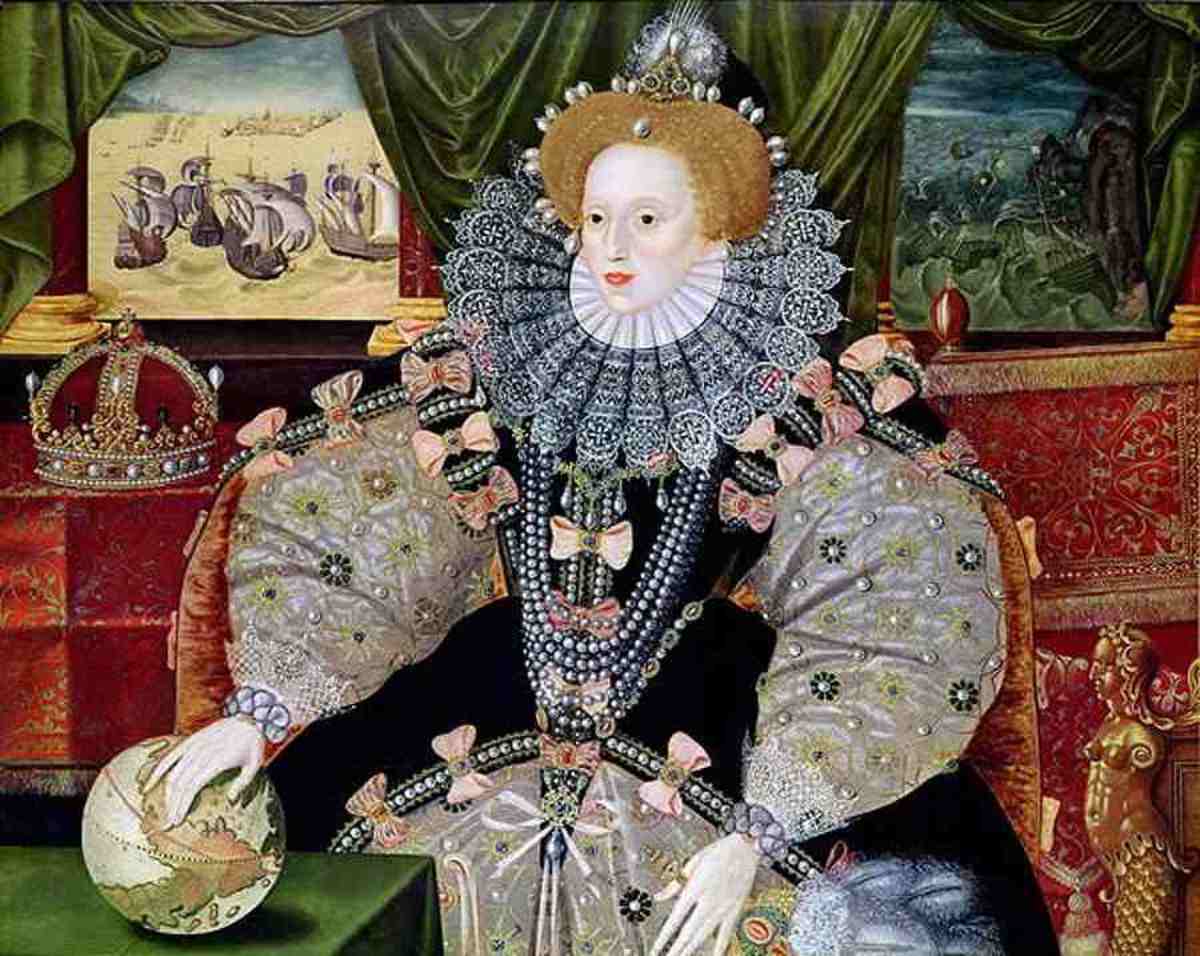The Red Queen - The Story of Margaret Beaufort - A Book Review
Having loved the novel's of Philippa Gregory for years I want to review her latest series on the cousins war. In this post I am reviewing "The Red Queen" written about the matriarch of the Tudor dynasty Margaret Beaufort. This novel was harder to read than the White Queen because the character of Margaret Beaufort is very sad and in many cases tragic.
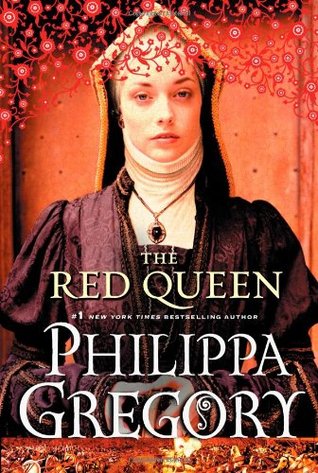
Synopsis
Margaret Beaufort is the only heir to the house of Beaufort which has a legitimate claim to the throne of England. However because she is a girl she cannot assert her claim herself. When she was twelve years old she was married off against her will to the half brother of the Lancastrian King Edmund Tudor. Even though she was so young and physically underdeveloped, her husband forcefully consummated the marriage. He did so because he was impatient for an heir and didn’t want to wait until she was older. Well his raping paid off and she got pregnant and gave birth to a son, although he happened to die of plague before the birth. As a thirteen year old young mother and widow Margaret was given no choice in the direction of her life. Her son was taken from her and given into the custody of her husbands brother Jasper Tudor and she was married off again to a much older man named Sir Henry Stafford. Throughout her life she was known to be extremely religious and it is her religion that she turned to in her earlier years to give her comfort over her circumstances. Her new husband turned out to be kind and caring, he allowed her to get an education and to see her son occasionally and generally provided a comfortable home for her. However Margaret was never to bear any more children, possibly the trauma of having given birth at such a young age damaged her permanently and left her incapable of further reproduction. Margaret's son Henry Tudor had a claim to the throne through her blood line and from his birth onwards she was convinced that he was meant to be King. To this end she dedicated her life and did all she could to bring it about through behind the scenes scheming and machinations. No one else seemed to share her fervour however, in particular her husband Sir Henry Stafford was a man who loved peace and was reluctant to arm his men and fight in battles. He ended up switching sides and fighting for the Yorks because he deemed them to be most likely to bring peace back to the country. For this act Margaret could not forgive him. After the second rebellion created by the Earl of Warwick in order to depose Edward IV failed, Margaret's son Henry Tudor and his guardian Jasper Tudor were forced to flee abroad to Brittany, they would not return for many years. When her husband died as a result of battle she chooses to remarry for a third time. This time she chooses a husband who is close to the York monarch's but willing to betray them if the rewards are great enough. Her new husband Thomas Stanley gets her a place at court as lady in waiting to Elizabeth Woodville. For years Margaret plays a double game pretending to be friends with the York monarch's all the while plotting from behind the scenes to put her son on the throne. When Edward IV dies and the princes in the tower disappear she summons her son back from Brittany and helps him to amass an army in order to fight for the throne against Richard III. As we know from history Henry wins and his mother becomes the most powerful woman in England.
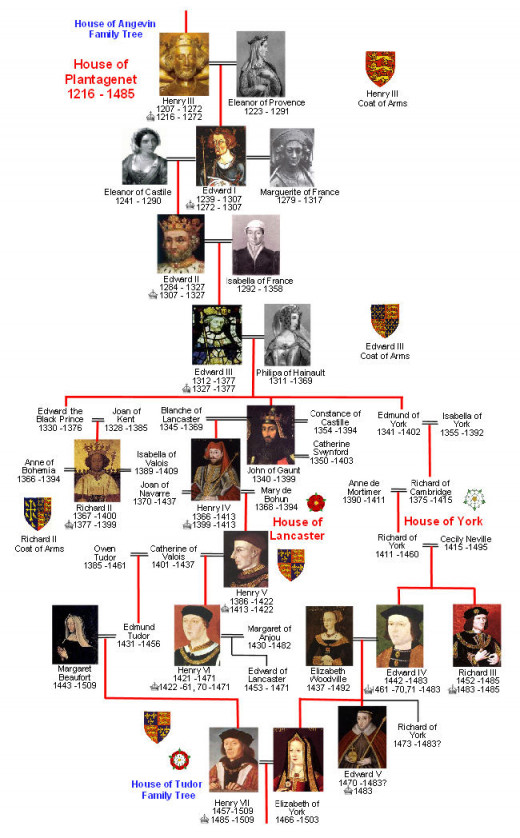
Margaret's Psychology
Through out the novel it is apparent that Margaret suffers from a deep mental illness. There is little wonder for this given the trauma she experienced so early in life. As a child she was raped and forced to go through an excruciating child birth all the while knowing that her mother did not care about her at all. Having the power over her life always be in the hands of other people and having those people make decisions for her that caused her harm affected her deeply although she was unaware of it herself. Her devotion to her religion was one place where she managed to get comfort and solace for her pain. In a way her faith was like a shield she wore to protect herself from further pain. Her belief in her son's destiny was really projection of the destiny she wished she could have for herself, she was living vicariously through him because all the choices in her life had been made by others. She suppressed her own feelings and emotions so much that she was incapable of receiving the kindness of others. Her second husband treated her well but she was unable to appreciate it because she was always suspicious of him meaning to do her harm. She was also extremely sexually repressed never knowing true love or passion in her life. She criticized Elizabeth Woodville in her mind as being an unfit Queen and placed herself in her position as wife to Edward IV thinking that her bloodline made her suitable for this. She could not consciously admit to herself that she desired Edward as a man, the understanding of lust was completely foreign to her and would remain so for her entire life. It is clear that Margaret was depressed and relied heavily on her belief in god and her son's destiny for solace. As clever as she was and as expert as she was at suppressing her own emotions her character can never be described as emotionally stable.

A Little History
In my previous hub reviewing "The White Queen" I gave a brief outline of the wars of the roses or the cousins war which tore apart England for thirty years. Henry Tudor was the eventual victor of this war even though he was a very unlikely candidate for King. Henry's claim to the throne rested on the descent of his mother Margaret Beaufort who was descended from one of the illegitimate children of John of Gaunt Duke of Lancaster the son of Edward III. Although John of Gaunt married his mistress and legitimized his children they were barred by act of parliament from succeeding to the throne. This made Henry VII's claims to the throne tenuous at best and misguided at worst. Henry won this conflict because he was the last surviving claimant of the house of Lancaster, the wars had killed off every other male from his house who could've claimed the throne. On the York side there was considerable self destruction as well, what began as a family of many sons and grandsons was left with only Richard III and his nephew as claimants. After the battle of Bosworth which ended with the death of Richard III, Henry won his throne and legitimized his claim by marrying the daughter of Edward IV, Elizabeth of York. It was his mother's scheming that got him the support he needed to win, possibly without his mother's advice he may never have wanted to claim the throne in the first place.
Do you think Margaret was projecting her own desires onto her son with her determination to make him King?
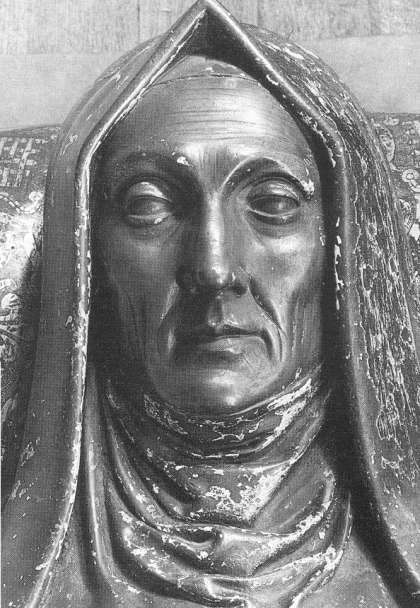
My Take on the Novel
I find Philippa Gregory's interpretation of Margaret Beaufort to be very complex, her character comes across as deeply disturbed and very unpleasant. And perhaps she was this way in real life, certainly history tells us that she was single minded in her pursuits and that she suffered trauma at an early age. This is a difficult story to read because there is no real winner in the end, Margaret does achieve her life's ambition to put her son on the throne but there is the behind the scenes understanding that this cannot make her or her son happy, indeed that she doesn't understand how to be happy at all. In many ways this book reads like a case study for what an abused child tells herself as she grows up and I do find the psychology accurate for what someone with her history could've felt like. It is a good book and I did enjoy reading it because it gives a completely different perspective on the cousins war than that of "The White Queen", in fact I think that is the point. Philippa Gregory wrote three novels that all cover the same events and each has a perspective that is at variance to the other two. Margaret's perspective is easily discernible as being the one that is least in touch with reality out of the series. I would recommend this book but not by itself, it should be read with the other two in the series.
Do you think that Margaret Beaufort was justified in her belief that her son should become King?





